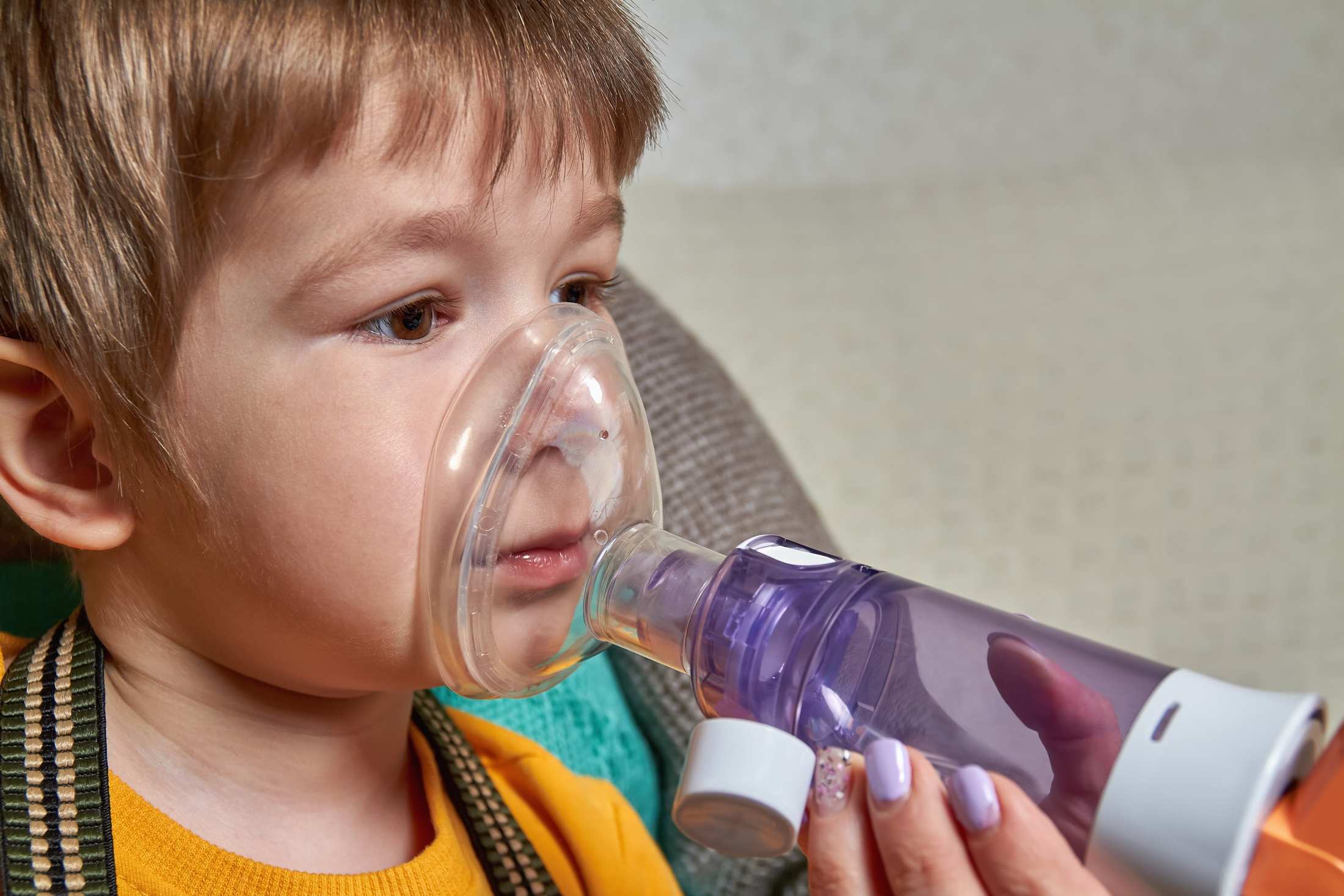Is Asthma a Disability? An In-Depth Analysis


Asthma is a chronic respiratory condition that affects millions of people worldwide. It is characterized by inflammation and narrowing of the airways, leading to shortness of breath, wheezing, chest tightness, and coughing (1). With such a significant impact on the lives of those affected, the question of whether asthma should be considered a disability has become a topic of discussion. This article, provided by Welzo, the health information website, aims to explore this topic from various perspectives, including the legal and social implications, as well as the role of asthma management in determining disability status.
The severity of asthma can vary greatly between individuals. According to the Global Initiative for Asthma (GINA), asthma severity can be categorized into four levels (2):
It is essential to consider these varying severity levels when discussing whether asthma should be considered a disability, as the impact of asthma on daily life can differ significantly depending on the individual's severity level.

A. Americans with Disabilities Act (ADA) definition of disability The Americans with Disabilities Act (ADA) defines a disability as "a physical or mental impairment that substantially limits one or more major life activities" (3). In some cases, asthma can meet this definition and be considered a disability under the ADA.
Substantial limitation of a major life activity For asthma to qualify as a disability under the ADA, it must substantially limit a major life activity, such as breathing, walking, or performing manual tasks (3). This determination is often made on a case-by-case basis, taking into account the severity and frequency of the individual's symptoms, as well as the impact of their asthma on their daily life.
Examples of major life activities affected by asthma Individuals with severe asthma may experience limitations in various aspects of life, including work, school, and social activities. In some cases, these limitations may be severe enough to meet the ADA's definition of a disability (4).
C. Workplace accommodations for individuals with asthma If an individual's asthma is considered a disability under the ADA, their employer may be required to provide reasonable accommodations to help them perform their job duties (5). These accommodations may include modifications to the work environment, such as improving air quality or providing access to an air purifier, as well as adjustments to work schedules or responsibilities.
D. Asthma and the Individuals with Disabilities Education Act (IDEA) The Individuals with Disabilities Education Act (IDEA) is a federal law that ensures students with disabilities receive appropriate special education services and accommodations in public schools (6). In some cases, students with asthma may qualify for these services and accommodations under the "Other Health Impairment" category, which includes chronic or acute health problems that adversely affect educational performance (7).
A. Public perception of asthma as a disability The general public's perception of asthma as a disability can vary widely. While some may view asthma as a manageable condition that does not
significantly impact daily life, others may see it as a debilitating illness that severely limits an individual's abilities.
B. Stigma surrounding asthma and disability Unfortunately, there is often a stigma associated with disabilities, including asthma. Some individuals with asthma may feel ashamed or embarrassed to discuss their condition or seek accommodations, leading to further challenges in managing their symptoms (8).
Employment Individuals with severe asthma may face challenges in finding and maintaining employment due to their symptoms. According to a study published in the Annals of Allergy, Asthma & Immunology, individuals with poorly controlled asthma are more likely to miss work or have difficulty performing their job duties (9).
Education Children and adolescents with asthma may experience limitations in their education due to their symptoms. In addition to qualifying for special education services under IDEA, these individuals may also require accommodations in the classroom, such as additional breaks or access to medication.
Social interactions Asthma can impact an individual's ability to participate in social activities, particularly those that involve physical exertion. This may lead to feelings of isolation or exclusion, further impacting their mental health and overall quality of life.
Access to healthcare Individuals with asthma may face challenges in accessing appropriate healthcare, particularly if they do not have adequate insurance coverage or live in areas with limited access to medical facilities.
A. Effective asthma management strategies Effective asthma management is critical in reducing the impact of asthma on an individual's daily life. This may include the use of medications, trigger avoidance, and regular monitoring of symptoms.
Medications Inhalers and other medications can help reduce inflammation and open the airways, making it easier to breathe. According to the Asthma and Allergy Foundation of America, adherence to medication regimens is critical in controlling asthma symptoms and preventing exacerbations (10).
Trigger avoidance Identifying and avoiding triggers, such as allergens or irritants, can help reduce the frequency and severity of asthma symptoms.
Regular monitoring Regular monitoring of symptoms, including peak flow measurements and symptom diaries, can help individuals identify changes in their asthma and adjust their management strategies accordingly. For more details on diagnosis and monitoring asthma you can read our research guide on: Asthma: Definition, Causes, Signs and Symptoms, Diagnosis, and Treatments.
B. The role of asthma management in reducing disability Effective asthma management can reduce the frequency and severity of symptoms, allowing individuals to better participate in daily activities and potentially reducing the impact of their asthma on their daily life.
C. The potential for improved asthma management to change disability status If an individual's asthma is considered a disability under the ADA, effective management may result in an improvement in their symptoms, potentially leading to a change in their disability status.
A. Social Security Disability Insurance (SSDI) and Supplemental Security Income (SSI) eligibility Social Security Disability Insurance (SSDI) and Supplemental Security Income (SSI) are federal programs that provide financial assistance to individuals with disabilities who are unable to work (11). To be eligible for these programs, individuals must meet specific criteria, including a determination of disability by the Social Security Administration (SSA).
B. Asthma as a qualifying condition for disability benefits Asthma can be a qualifying condition for disability benefits if it meets the SSA's definition of a disability, which requires a determination of substantial limitations in major life activities (12).
C. Process for applying for disability benefits due to asthma To apply for disability benefits due to asthma, individuals must submit an application to the SSA and provide medical documentation supporting their claim. The SSA will evaluate the individual's claim and determine their eligibility for benefits.
D. Factors considered when evaluating asthma-related disability claims When evaluating asthma-related disability claims, the SSA considers various factors, including the severity
and frequency of the individual's symptoms, the effectiveness of their treatment, and the impact of their asthma on their daily life (13). It is important to note that not all individuals with asthma will qualify for disability benefits, as eligibility is based on individual circumstances and the SSA's criteria.
To learn more about asthma treatment options, visit our buy asthma treatment section.
The question of whether asthma should be considered a disability is complex, with legal, social, and medical implications. While some individuals with severe asthma may meet the definition of a disability under the ADA or be eligible for disability benefits, the impact of asthma on daily life can vary greatly between individuals. Effective asthma management strategies, including medication use, trigger avoidance, and regular monitoring, can help reduce the impact of asthma on daily life and potentially change an individual's disability status. It is crucial to consider individual circumstances and severity when evaluating whether asthma is a disability and to seek necessary accommodations and support when needed.
References:
Global Initiative for Asthma. (2021). Global strategy for asthma management and prevention. Retrieved from https://ginasthma.org/reports/
Global Initiative for Asthma. (2021). Diagnosis and classification of asthma. Retrieved from https://ginasthma.org/asthma-diagnosis/
Americans with Disabilities Act of 1990, as amended, 42 U.S.C. § 12101 et seq.
Job Accommodation Network. (2016). Accommodation and Compliance Series: Employees with Asthma. Retrieved from https://askjan.org/media/asthma.html
U.S. Equal Employment Opportunity Commission. (2021). The ADA: Your Employment Rights as an Individual With a Disability. Retrieved from https://www.eeoc.gov/laws/guidance/ada-your-employment-rights-individual-disability
U.S. Department of Education. (2021). Individuals with Disabilities Education Act (IDEA). Retrieved from https://sites.ed.gov/idea/
National Center for Learning Disabilities. (n.d.). Other Health Impairment. Retrieved from https://www.ncld.org/disability-advocacy/learn-ld-laws/idea/other-health-impairment
Funnell, L., & Lambert, N. (2019). The Stigma of Asthma: The Association Between Perceived Stigma and Mental Health. Journal of Asthma, 56(10), 1059-1067. doi: 10.1080/02770903.2018.1533841
Nathan, R. A., Sorkness, C. A., Kosinski, M., Schatz, M., Li, J. T., Marcus, P., & Pendergraft, T. B. (2004). Development of the asthma control test: a survey for assessing asthma control. Journal of Allergy and Clinical Immunology, 113(1), 59-65. doi: 10.1016/j.jaci.2003.09.008
Asthma and Allergy Foundation of America. (2021). Asthma Medications. Retrieved from https://www.aafa.org/asthma-treatment-asthma-medications/
Social Security Administration. (2021). Disability Benefits. Retrieved from https://www.ssa.gov/benefits/disability/
Social Security Administration. (2021). Listing of Impairments - Adult Listings (Part A). Retrieved from https://www.ssa.gov/disability/professionals/bluebook/AdultListings.htm
Social Security Administration. (2021). Disability Evaluation Under Social Security. Retrieved from https://www.ssa.gov/disability/professionals/bluebook/overview.htm
Cisternas, M., Blanc, P. D., & Yen, I. H. (2015). Disability in chronic obstructive pulmonary disease and asthma. Medical Care, 53(2), 107-114. doi: 10.1097/MLR.0000000000000284
Centers for Disease Control and Prevention. (2021). Asthma Data, Statistics, and Surveillance. Retrieved from https://www.cdc.gov/asthma/data- surveillance/index.htm
Centers for Disease Control and Prevention. (2020). Asthma in the US. Retrieved from https://www.cdc.gov/vitalsigns/asthma/index.html
Cowl, C. T., & Davis III, J. L. (2021). Occupational Asthma. Mayo Clinic Proceedings, 96(4), 1104-1116. doi: 10.1016/j.mayocp.2020.10.042
AirNow. (2021). Air Quality Index (AQI). Retrieved from https://www.airnow.gov/aqi/
Thakur, N., Martin, M. A., & Castellanos, E. (2019). Asthma Disparities and Environmental Justice. Current Allergy and Asthma Reports, 19(1), 1-13. doi: 10.1007/s11882-019-0883-6
Adams, R. J., Fuhlbrigge, A., Finkelstein, J. A., Lozano, P., Livingston, J. M., Weiss, K. B., & Weiss, S. T. (2004). Impact of inhaled antiinflammatory therapy on hospitalization and emergency department visits for children with asthma. Pediatrics, 114(1), 129-137. doi: 10.1542/peds.114.1.129
National Heart, Lung, and Blood Institute. (2020). Guidelines for the Diagnosis and Management of Asthma. Retrieved from https://www.nhlbi.nih.gov/health-topics/guidelines-for-diagnosis-management-of-asthma









